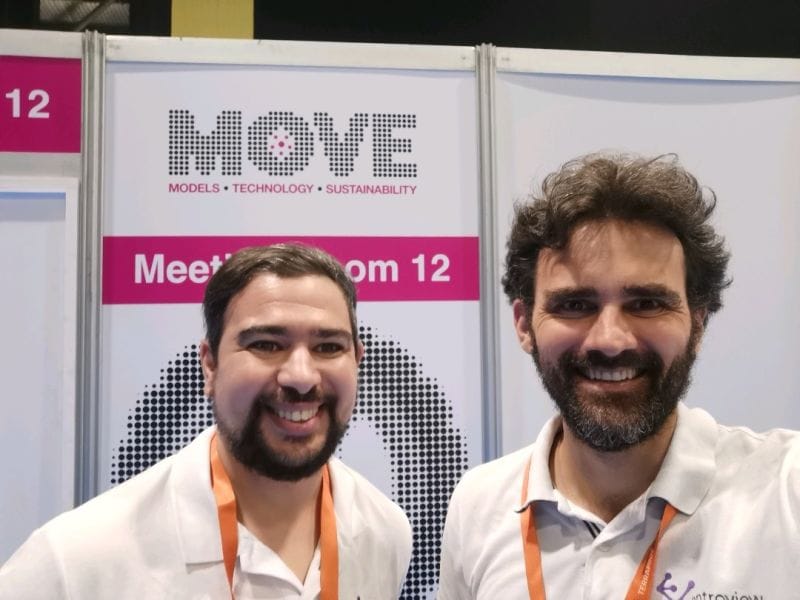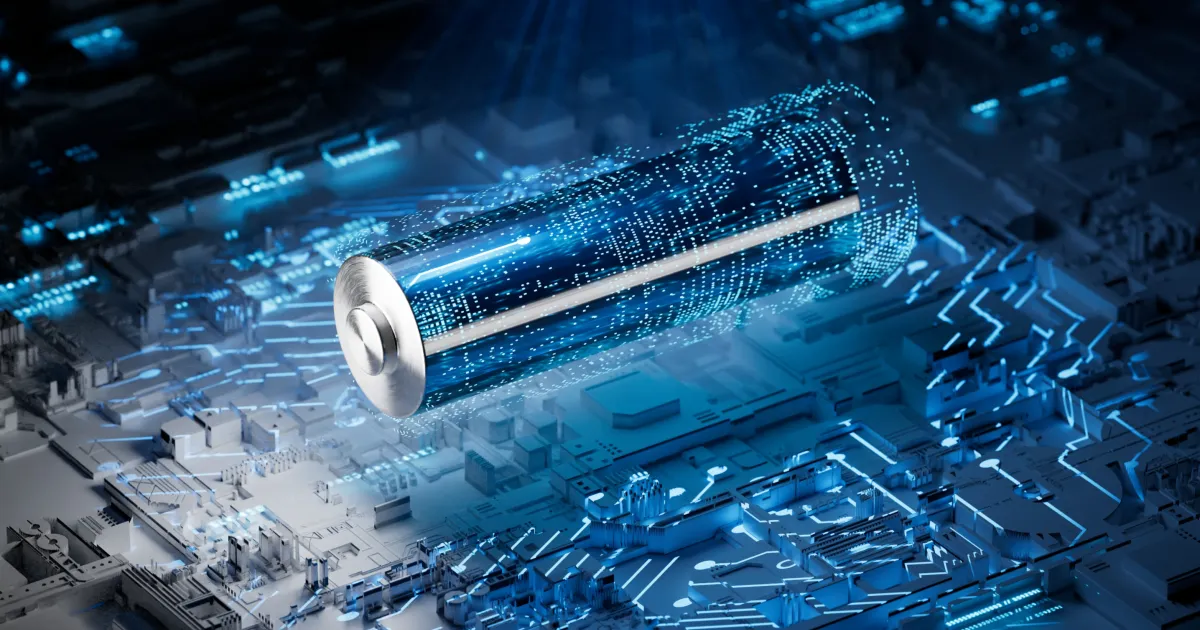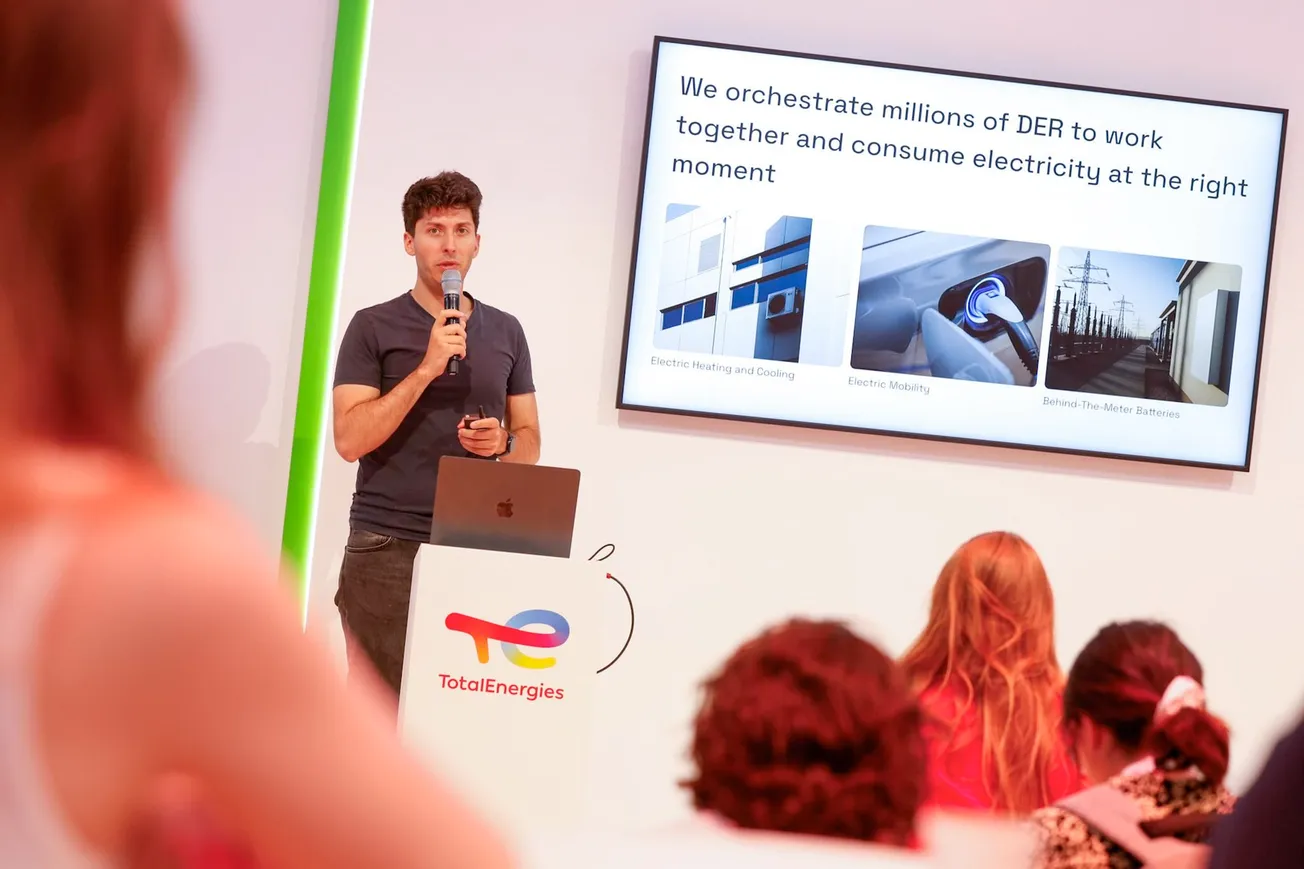In a world increasingly powered by electricity, the global appetite for batteries is soaring, driven largely by their growing use in the automotive, energy storage, and telecommunications sectors.
This rising demand is fueling mass production and the construction of gigafactories designed to churn out millions of lithium-ion batteries annually. Europe alone has 42 gigafactory projects, including five in France.
As these batteries get widely deployed, they are poised to make a big impact on climate change. But they also create new challenges: How to address battery aging and waste?
Entroview, a Deep Tech startup, wants to help manage those issues by providing precise insights into the real-time internal state of batteries for gigafactories and Electric Vehicles (EVs). Its technology offers a solution that could significantly reduce waste and safety risks by identifying underperforming batteries early, ensuring they are either recycled or reused efficiently.
Entroview recently raised $1.6 million in a Seed Round led by AFI Ventures and Rethink Ventures. I spoke with Entroview CEO Gaetan Depaepe to learn more about how Entroview’s solution will shape the future of battery management and how the startup plans to use its fresh funding.
What is Entroview?
Launched in 2021, by Depaepe and Sohaib El Outmani, Entroview is developing a diagnosis software that uses a physics-based method to track battery aging and state of health. Their solution enables equipment manufacturers and battery cell producers to detect defects early and make necessary adjustments, extending battery life by up to 40%.
Their solutions are already being tested by three leading gigafactories and two European car manufacturers.
Why?
Today, the primary consumer of lithium-ion batteries is the automotive industry, fueled by the increasing popularity of electric vehicles (EVs). With the 2035 ban on the sale of fossil-fueled cars approaching, demand for lithium-ion batteries is expected to rise as much as sevenfold in the coming years.
While newer technologies like solid-state batteries are emerging, lithium-ion batteries remain the most commonly used due to their superior energy density, long life cycle, and fast recharge capabilities. As battery reliability, efficiency, and cost-effectiveness become even more critical, lithium-ion technology continues to dominate the market.
Despite their advantages, lithium-ion batteries present both environmental and practical challenges. On an environmental level, mining lithium, cobalt, and nickel are highly energy-intensive, resulting in substantial greenhouse gas emissions. Furthermore, Lithium-ion batteries are often discarded early because uneven cell degradation reduces overall performance, even though some cells still function well, leading to unnecessary waste.
There is also debate on how to dispose of these Lithium-ion batteries at the end of their lives. Although officially banned in landfills in the US and Europe, there are reports of long-lasting landfill fires created by exploding Lithium-ion batteries that have nonetheless ended up there.
On a practical level, battery aging and waste are serious concerns in industries like the Electric vehicle industry where batteries account for approximately 40% of costs, and where sudden battery death could pose serious safety risks. As batteries undergo charge and discharge cycles, their capacity declines, often lasting only 500 to 1,000 cycles before efficiency drops. Higher temperature also contributes to their aging process.
Being able to effectively track and manage health batteries to avoid unnecessary waste and accidents is therefore key.
Under the Hood
The core of Entroview’s physics-based solution lies in its ability to track entropy rapidly—the different configurations of lithium atoms inside the battery’s electrodes during charge and discharge cycles.
“These different configurations affect the battery’s temperature. Sometimes, even while the battery is charging, the entropy effect causes the temperature to drop,” Depaepe said. ”By monitoring the battery’s temperature and using smart algorithms, we can now calculate entropy variations in real-time. This is crucial because it's these variations that give us insight into what’s happening inside a battery cell in real-time.
“While entropy has been understood for about 40 years, it was primarily measured in labs because calculating it took about a week and a half. Researchers had to change the temperature very slowly to observe how the battery reacted,” he added. “Now, with advancements in tracking entropy during normal charge and discharge cycles, we can measure these variations in real-time without imposing external temperature changes.”
By measuring entropy, Entroview can monitor the physical changes happening inside batteries and predict their performance and lifespan. The detailed real-time data allows manufacturers to detect battery defects, provide customers with accurate information on battery charge status, and ensure that batteries are used to their full potential before being replaced.
“Currently, it takes 8 days to test for defects in all batteries at the end of production lines, which is a long time. Right now our solution can do it in 10 hours,” he said. “This is applicable to all types of batteries produced across Europe.”
Regarding real-time battery health monitoring, which helps increase battery safety and lifespan while minimizing the risk of sudden failure, he said: “Since we currently can’t fully monitor what’s happening inside a battery in real-time, there’s always a risk of sudden failure. If that happens in your phone, it’s inconvenient but not catastrophic. However, if it happens in your car while you’re driving, it could have serious consequences, like a fire.”
Entroview believes that real-time health diagnostics can extend car battery life by 20% to 30%, by preventing unnecessary battery removal ahead of time for safety reasons. This is a potential game changer for the automotive industry, considering that the battery accounts for 40% of the car’s cost, he said.
Who?

Entroview was born when Depaepe, a business school graduate and founder of two companies — Likeatt, a renewable energy startup, and Runview — met PhD student El Outmani five years ago at an Ecotech forum at Bercy.
They struck up a conversation about Sohaib’s PhD research, specifically the entropy-based algorithm he had been developing with his three thesis directors, one of whom co-created the lithium-ion battery. The two stayed in touch.
“After a few months, Sohaib saw that I had left my previous company and suggested we grab a coffee," Depaepe recalled. "During that meeting, he told me he was looking to start a company around this new patented technology and asked if I would become the CEO.”
They started working together and a few months later launched Entroview.









